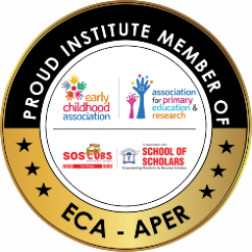Top Parent-Teacher Meeting Questions Every Parent Should Ask
Parent-Teacher Meeting Questions are the gateway to knowing a child’s academic achievement, social behavior, and emotional state. The most important questions to ask are how the child is doing in comparison with others, strengths and weaknesses, class behavior, and how you can assist learning at home. Planning these questions for the parent-teacher conference makes the meeting worthwhile and has an effective action plan for the child’s achievement.

Parent and teacher discussing child’s progress and important parent-teacher meeting questions (Image Source: Google)
In this blog, we’ll explore the prominent questions that parents should ask teachers about their child’s progress, classroom behaviour, and how you can support your child better at home.
Essential Tips For Parent-Teacher Meeting Questions Parents Can’t Miss
Questions to Ask Teachers About Academic Performance
Academic excellence is the primary concern for most parents. If you asked the proper parent-teacher meeting questions, you would be able to know how well your child is learning and understanding in school. Some useful questions include:
Q1. As compared to the class average, how is my child performing in the important subjects?
Q2. In your opinion, what are my child’s strong points, and where do you they can grow?
Q3. Could you provide specific examples of improvement in reading, writing, or mathematics?

Parent and teacher are discussing the child’s progress during a parent-teacher meeting (Image Source Google)
Questions About Social and Emotional Development
A child’s progress should not be restricted to grades, but also to living with others, managing feelings, and building confidence. Some of the high-profile parent-teacher meeting questions to ask are:
Q1. How does my child communicate with other students?
Q2. Does my child actively engage in group work?
Q3. Has there been any change in my child’s behaviour or confidence?

Children interacting and working together in school to develop social and emotional skills (Image Source Google)
Best Questions for Understanding Learning Habits
Imbibing good habits in a child’s daily routine helps in gaining long-term success. These questions to ask teachers about child progress go deeper into daily study routines and participation:
Q1. How engaging is my child during classes?
Q2. Does my child finish homework on time and with sound comprehension?
Q3. What study habits can I support at home to achieve improved results?
Important Questions to Ask Teachers for Feedback
As teachers spend time with children for hours a day, they observe numerous strengths and issues parents do not see. You can ask:
Q1. When you observe my child’s way of learning, what do you think is most unique about them?
Q2. Are there any specific issues that we should attempt to address?
Q3. Throughout the course of the academic year, how can I monitor my child’s development?
How Parents and Teachers Can Collaborate Effectively
The importance of a strong school-home partnership should not be underestimated. At a parent-teacher meeting, consider asking these questions:
Q1. How can I help support my child’s learning at home?
Q2. How can we have open and continuous home-school communication?
Q3. Are there any particular activities or resources you’ll suggest for my child?

Parent, teacher, and child working together for better learning outcomes (Image Source: Google)
Want to Make Your Parent-Teacher Meeting More Effective? Here’s How?
Effective strategies for parent-teacher communication can make meetings more productive and meaningful—here are some points.
- Plan Ahead: Jot down questions to ask your teacher during parent-teacher conferences so you do not forget to ask something important.
- Listening: Give time for the teacher to speak before stating your observation.
- Taking Notes: Write down any key points and any action steps to follow through on at home.
- Be positive: Consider yourself a partner in solving problems, rather than confronting problems.
Building a Strong Parent-Teacher Partnership
Parent-teacher conferences are more than grades or report cards; they are an opportunity to establish a productive relationship among parents and teachers. If parents arrive with considerate parent-teacher meeting questions, then the teachers can see that they also care about the child’s development. Conversely, teachers are provided with useful information from parents, which will enable them to serve the child better in class. This two-way interaction builds confidence, promotes consistency between home and school, and makes sure that children are given the direction, encouragement, and attention they require to achieve. Parent-teacher partnership is the key to long-term achievement, both academically and emotionally.
Frequently Asked Questions
Q1. How much time should be allowed for each parent-teacher conference?
On average, meetings 15-20 minutes. Make sure you use this time wisely; be asking thoughtful and direct questions.
Q2. Should you bring your kid to parent teacher conferences?
Unless the school suggests it, it’s usually better to attend alone. This allows for open discussion about strengths and areas for growth of the child without the child feeling insulted or cornered. You can provide feedback to your child afterwards and in a positive way.
Q3. What to do when you disagree with a teacher?
It is okay to disagree.Rather than respond first, request examples and observations. Afterwards, you may ask for a close follow-up meeting where you can strategize together.
Q4. Is it okay to ask for updates beyond the parent-teacher conference?
Yes! Many schools welcome ongoing communication. It is okay to inquire from the teacher on how best to remain informed, either via emails, weekly reports, or by phone calls.
Q5. How to ask a teacher about child performance?
Your child can still be challenged and motivated by asking about leadership roles, advanced projects, or enrichment opportunities, even if they are already excelling.








